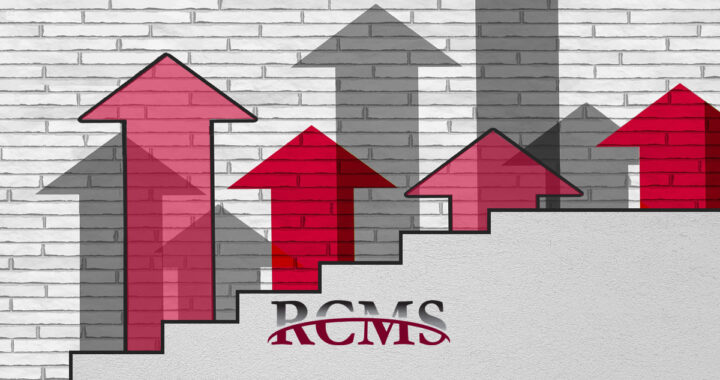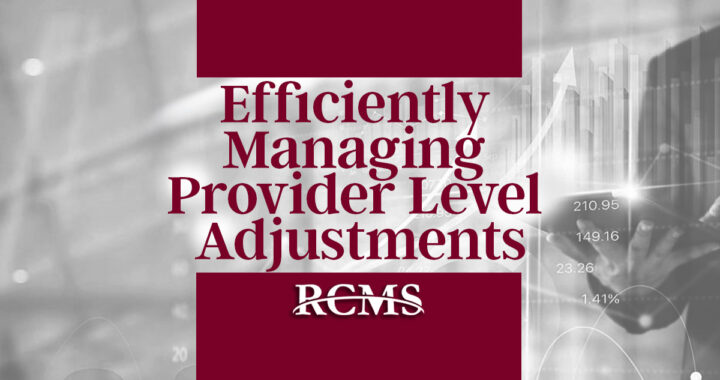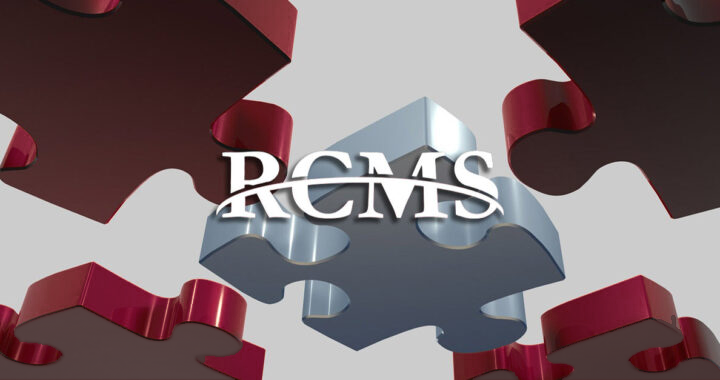Six Steps Toward Taking Control of Your Business Office
Unstructured content plagues practically every healthcare organization. It’s the data that resides outside your organization’s core systems and processes. For patient care, it’s the patient information that exists outside your EMR. In patient finance, it’s the data outside your billing and financial systems. And in accounting, it lives beyond the reach of your ERP system. In this article, we look at six steps to manage content contained within these systems – in all file formats. Each step makes life easier for the people who rely on efficient access to current information.
Step 1. Move Capture to The Front-End Of Your Workflow
Before thinking of new ways to better manage your unstructured content, you first need to understand what it is. For each organization, this content can exist across an assortment of documents and information spanning all departments. For example, in patient access, unstructured content can be everything from patient ID’s and insurance cards, to consent forms and waiver documents. In accounting departments, invoices and the information surrounding specific financial transactions often exist as unstructured content. Paper encounters, patient correspondence, EOBs and EDI transactions similarly hamper processes in patient financial services. The list goes on, but the key here is to understand the nature of the business content each work area processes. Talk to the people who deal with these issues every day. Then you can take steps to determine the best practice approaches to get it under control.
Step 2. Automate Manual Work Processes
Odds are, paper and other physical content like forms, letters, photocopies and paper remittances are in someone’s way. Sifting through a stack of EOB’s for that one piece of paper that a patient account representative needs leads to frustration and reduces time spent collecting on outstanding accounts. It also increases the likelihood that another piece of information may be lost or misfiled. Even if your organization’s paper content is safely stored in a central filing location or document imaging system, those storage or indexing costs would likely be better allocated to collecting outstanding funds. Here’s where Enterprise Content Management (ECM) linked with Revenue Cycle Management (RCM) automation can help.
A unified ECM and RCM solution allows you to capture the diverse range of information and content within your organization – paper EOB’s and correspondence, faxed orders or requests for information, denied claims, insurance cards, patient IDs and more. By automating the capture of this documentation and combining the process of data collection with document indexing, the results can be astonishing.
First, that business content required for your HIS application is often the same data required for keyword index values to store and retrieve that same document. Additionally, ECM eliminates the need for physical storage and management, thereby reducing staff’s frustrations about navigating through a mountain of paper to find what they need. Saving on storage, indexing and filing costs also demonstrates a true return on investment that is sure to please everyone in your organization.
Step 3. Validate the Data You Have Captured
Capturing unstructured content is only the beginning. While many solutions stop at this point, if the data is not accurate, it has little to no real value. Today’s best practice solutions include client definable data validation routines that scrub extracted data and help determine the validity of converted data values. Why is Data Validation important? Well, with reimbursement rates shrinking and the cost to collect increasing, every denied claim represents an additional twenty-five to thirty dollars of cost for an organization.
To tackle these challenges, data validation routines help scrub the data to ensure its accuracy before generating the desired output. If errors are found, users have the ability to correct them during an “edit phase,” replacing the original converted data by simply keying the correct information, selecting data from a drop down list, or auto-populating the data from a database lookup. This work process ensures that correct information is available for resolving future issues such as patient billing, denied claims, disputed amounts or other patient inquiries.
Step 4. Store Your Information Somewhere Safe
Now that you’ve captured and cleansed that unstructured content, you need somewhere to store it. An ideal RCM solution provides you with a single, secure ECM repository for electronic storage of this business content. This helps reduce complexity in your IT environment by eliminating disparate, disconnected content silos.
Unstructured information also poses a security risk. An ECM solution (such as Hyland’s OnBase Platform) securely stores this content, reducing the risk of a HIPAA violation. Additionally, RCM/ECM systems that provide audit trails make compliance with 3rd party audits, Joint Commissions, Sarbanes Oxley and other initiatives much simpler – making life easier for both users and constituents.
Step 5. Integrate Data with Disparate Systems
For your content to be useful, the people who need to access it should be able to find it easily and quickly. By integrating with your organization’s core applications, an ECM solution provides instant access to content within those systems with a simple click of the mouse. For those in patient financial services, it means finding transactional billing data within the billing system instead of on an EOB or isolated EDI transaction. For those in finance and accounting, it means locating an invoice directly within the ERP system.
Ideally, users of a well-integrated RCM solution might not even be aware of its existence. They simply find what they need within the systems they know and use every day. Not only does this make them more productive, it also enhances the value of your existing applications because users have everything they need within your registration system, EMR, billing system, ERP and other applications.
Step 6. Report & Reconcile
You’ve identified your business content, captured and validated it, safely stored it and integrated it with your core systems. With an integrated RCM/ECM solution, you can use that content to help your staff work more efficiently.
For example, data warehouses can be automatically created or populated to provide drill-down business analytics. This provides benefits such as identifying collections trends with outcomes, integrating daily cash receipts to the bank deposits for bank reconciliation, or forecasting future cash flows from unbilled charges. Users, managers, directors and executives can work more efficiently within predictable parameters. As a result, your operations run more smoothly and efficiently, with staff more productive and content.
Getting Started: Working with RCMS
By capturing and routing correspondence through rules-based workflows, solutions such as our ReSolve® Correspondence Management facilitates items being entered and worked faster. Linked to ECM, we leverage Artificial Intelligence (AI) and Robotics Process Automation (RPA) to eliminate manual errors and to automate many of today’s revenue cycle processes. Contact Us today to schedule a discovery call or a presentation of our capabilities.
Editor’s Note:
A version of this article was originally published by ReMedics, LLC. ReMedics is a sister company of RCMS providing Business Process Outsourcing services to Physician Practice Groups, MSOs, Hospitals and Health Systems.








